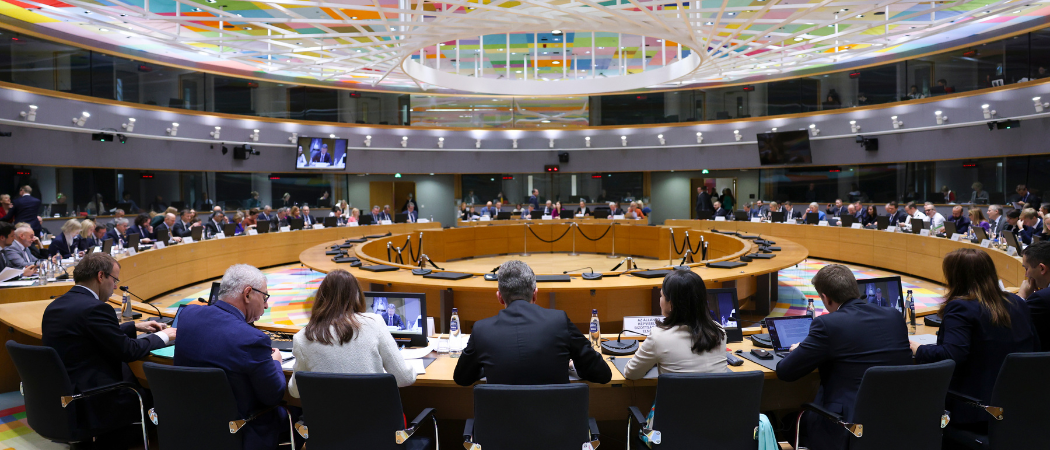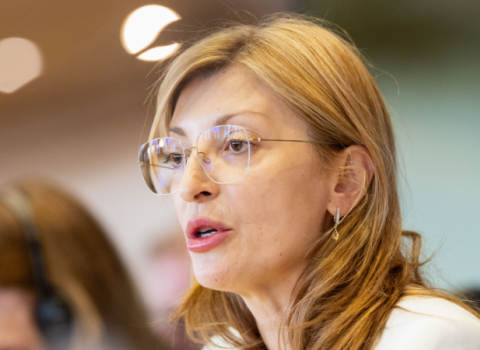Member states want to reinforce the European Research Area, but concrete measures will have to wait until next year

EU Ministers of Competitiveness meeting on 28 and 29 November 2024 in Brussels. Photo credits: European Union
EU research ministers today adopted conclusions on strengthening competitiveness and reinforcing the European Research Area (ERA), with a focus on overriding principles rather than the tricky details of the implementation.
During this morning’s competitiveness council meeting, ministers invited the Commission to work with member states to remove “remaining barriers to free circulation of researchers, scientific knowledge, technology and data”.
However, there is little detail on concrete measures member states would be willing to take to finally realise the ERA, which has been an EU objective since 2000 but has been hampered by lagging political will.
“Is this really the best they can do on ERA?” pondered Kurt Deketelaere, secretary general of the League of European Research Universities (LERU), in response to a draft of the text.
Commission President Ursula von der Leyen has tasked incoming research Commissioner Ekaterina Zaharieva with bringing forward an ERA Act, to guarantee the free movement of researchers, scientific knowledge and technology.
It follows high-level reports from Enrico Letta, who called for research and innovation to become the ‘fifth freedom’ of the single market, and Mario Draghi, who proposed establishing a ‘Research and Innovation Union’.
The Council calls for the recommendations in both reports to be considered “in order to develop a fully functioning ERA”.
However, the conclusions make no reference to an ERA Act, most likely because member states oppose new legislation, suggests Deketelaere.
He says this should be a warning to those drafting the proposal to carefully consider its scope. It should focus on creating a legal basis to oblige countries to eliminate rules that block cross-border mobility and cooperation, or make it less attractive.
“That would be a major achievement and something member states would accept from the EU. What they will not accept is the introduction of new detailed social security, pension, or tax rules in their own legal order,” he said.
Stakeholder engagement
In its conclusions, the Council is positive about the last reform to ERA governance in 2021, which led to the creation of the ERA Forum, bringing together member states and associated countries, the Commission, and R&I stakeholders to implement a common policy agenda.
The text calls for a “strengthened role” of the European Research Area and Innovation Committee (ERAC), which is made up of representatives of member states and the Commission, in joint priority setting and strategic planning. It also suggests reviewing the make-up of the ERA Forum to enhance stakeholder participation, “particularly industry”.
Industry is already represented on the ERA Forum, but rarely attends the meetings, said Silvia Gómez Recio, secretary general of the Young European Research Universities Network, which has a seat on the Forum.
“They are not coming because they clearly see no benefit,” she said. She suggests it would make more sense to reward stakeholder groups that “have really taken care of the development of the ERA”.
Gómez Recio does however believe it is positive the Council has recognised the role of the ERA and the importance of stakeholder engagement. The time for concrete measures will be next year, when the Council adopts its recommendation on the second ERA policy agenda, for 2025-2027.
Today’s text highlights the “need to stay focused”, and Gómez Recio hopes to see this translated in a new policy agenda with fewer priorities. “We should focus on less things, ensuring where we have political support, then go ahead, and go ahead stronger,” she said.Mattias Björnmalm, secretary general of the university association CESAER, welcomed the Council’s focus on the Letta report, and its recognition of the role of R&I in the economy.
“The next step now is for the European Commission to act promptly by proposing a legally binding approach, such as an ERA Act, to guarantee the fifth freedom,” he said.
However, Björnmalm admitted he was surprised by the “lack of urgency” in the conclusions. “The Letta, Draghi, and Heitor reports collectively make a compelling case for swift action, yet this sense of urgency is not reflected in the conclusions,” he said.
When it comes to strengthening competitiveness, the Council document restates the target of spending 3% of GDP on R&D, and the need for schemes to support “high-risk / high-reward innovation activities”.
The conclusions also highlight the added value of collaborative R&I projects, COST actions, and programmes to tackle brain drain and support careers such as Marie Skłodowska-Curie Actions.
Support for ERC independence
Also during their meeting, ministers discussed the need to reinforce the independence of the European Research Council (ERC), following a note from Denmark which was supported by 21 other national delegations.
“The European Scientific Council is the guarantor of scientific quality, integrity, and continued relevance of the programme, and it is, in our minds, very important that it stays like this,” said Danish higher education and science minister Christina Egelund.
“Ahead of the Danish presidency in the second half of 2025, it is very positive to see Denmark leading a group of countries re-affirming how critical the autonomy of the ERC is,” wrote Julien Chicot, head of R&I policy at the Guild of European Research-Intensive Universities, in response to the discussion.
New research commissioner Ekaterina Zaharieva has also pledged to safeguard the ERC’s autonomy as the Commission prepares to prioritise competitiveness in the next Framework Programme.
The Council also discussed the contribution of R&I to EU competitiveness in light of the Draghi report and adopted conclusions on a Commission communication on advanced materials, and a potential R&I initiative on the bioeconomy focused on central and eastern Europe.





 A unique international forum for public research organisations and companies to connect their external engagement with strategic interests around their R&D system.
A unique international forum for public research organisations and companies to connect their external engagement with strategic interests around their R&D system.